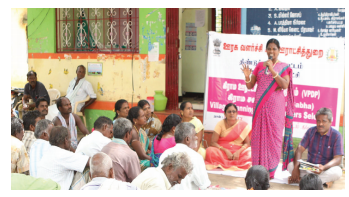Chapter: 11th Political Science : Chapter 5 : Democracy
Deliberative Theory of Democracy
Deliberative Theory of Democracy
Democracy is Deliberative in its scope. It
emphasizes on the form of democracy that emphasizes the need for deliberation,
discourse and debate that defines the public interest. Deliberation and participation
are two critical aspects of democracy. Deliberative democracy and participation
are usually strong in the grassroots level. India’s Panchayati Raj institutions
are usually strong in this process. Grass roots democracy features Panchayati
Raj Institutions and civil societies that strengthen the functioning of the
government. James Miller defines that deliberative democracy is built on the
system of deliberation that features that decisions are reflective of the
discussion among the participants. It features the willingness of the people to
listen to the views and consider the interests of the others modifying their
own opinions accordingly. Public interest and public opinion are the key
components of the deliberative democracy. It emphasizes on the consensus built
upon the acceptance from the masses rather than the influential individuals.

Deliberative democracy is usually based on a
rights-based approach of the current model of the development discourse. It
provides for resolution of the scope for conflicts of interest with the
democratic institutional mechanism balancing the benefits of the competing
groups.
Deliberative democracy is different from other
forms of democracy by maintaining a person is rational enough to set aside
particular interest and opinion to aspire for fairness and common interests of
the collective and deliberation was based on equality, equity, and public
goods. It values the decisions arrived after open discussion that heard all the
points of view the most. Deliberative democracy is ‘discursive’ in scope. It is
a type of democracy in which deliberation is central to decision making.
Deliberative democracy differs from traditional democratic theory in authentic
deliberation, not merely confined to voting. It is the primary source of
legitimacy for the law making processes.
![]()
![]()
Deliberative democracy is harmonious with both
representative democracy and direct democracy. Rawls and Habermas famous
theorists of justice and public opinion have observed that political choice, to
be legitimate, must be the outcome of deliberation about ends among free,
equal, and rational agents. Deliberative democracy recognises “the full and
equal membership of all in the sovereign body responsible for authorizing the
exercise of that power, and establishes the common reason and will of that
body”.
Related Topics